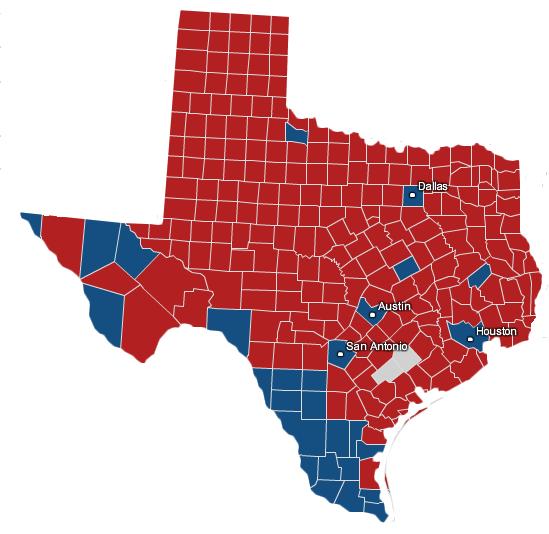Advocates for Evidence-Based Health Policy Speakers
Medicaid at the Polls
Five states – Texas, Florida, Mississippi, Louisiana, and South Carolina – plan on skipping the Medicaid expansions available from the Affordable Care Act. If these states fail to act, nearly 4 million Americans will be denied coverage.
 The decision of the Supreme Court regarding the Affordable Care Act indicates that the planned Medicaid expansion is no longer mandatory but instead optional for states. Therefore, the more than 15 million Americans who would have been newly eligible for Medicaid may not necessarily receive coverage.
The decision of the Supreme Court regarding the Affordable Care Act indicates that the planned Medicaid expansion is no longer mandatory but instead optional for states. Therefore, the more than 15 million Americans who would have been newly eligible for Medicaid may not necessarily receive coverage.
Reactions to the Supreme Court decision varied widely among state governors. The “decision gives considerable momentum to our health care reform efforts here in Maryland” said Governor Martin O’Malley (D). In South Dakota, Governor Dennis Daugaard (R) was “still convinced that the President’s health law is bad policy.” He vowed to “continue to fight to protect South Dakota citizens from its harmful effects.” Michigan’s Rick Snyder (R), stated that while he “may not agree with everything in the law, now that the Supreme Court has essentially upheld the Act, we must act quickly to avoid an undue burden on Michigan residents.” The Snyder administration is still undecided about whether or not to implement the state-based components of the Affordable Care Act.
Five states, all controlled by Republican governors and legislatures, have stated early that they have no intentions to expand Medicaid.
This original Policy Prescriptions® analysis utilizes existing data from the Kaiser Family Foundation (KFF), Urban Institute, and election results from the most recent gubernatorial elections in Louisiana, Texas, Florida, Mississippi, and South Carolina. Urban Institute data were used to determine the number of residents in each state that would be newly eligible for Medicaid under the Affordable Care Act. Data from KFF determined the proportion of the eligible uninsured population that were adults and therefore potential voters. Election results for Florida, South Carolina, and Texas from 2010 were derived from the New York Times; Mississippi (2011) and Louisiana (2011) election results were derived from Wikipedia.
Nearly 4 million individuals would be eligible for Medicaid in the 5 states if each state expanded its Medicaid eligibility to 137 percent of the federal poverty level. Of these individuals, over 1.0 million in Florida, 282,717 in Louisiana, 185,699 in Mississippi, 235,507 in South Carolina, and nearly 1.4 million in Texas were adults and therefore potential voters.
Estimates from exit polling in 2002 indicated that only 30 percent of uninsured individuals under age 65 actually voted. Mid-term elections tend to have lower voter turnout than years in which there is a presidential election. Therefore, I offer two scenarios of potential voters. In the high turn-out scenario, 100 percent of eligible voters actually vote. In the low turn-out scenario, only 30 percent vote. These estimates are then compared to the margin of victory in the prior election.

 Under the low turn-out scenario, there are enough potential uninsured voters to oust the incumbent governors in Florida (Rick Scott) and South Carolina (Nikki Haley) by margins of 250,562 and 10,661 votes, respectively. Under the high turn-out scenario, Rick Perry of Texas could be defeated by a margin of 733,137 votes.
Under the low turn-out scenario, there are enough potential uninsured voters to oust the incumbent governors in Florida (Rick Scott) and South Carolina (Nikki Haley) by margins of 250,562 and 10,661 votes, respectively. Under the high turn-out scenario, Rick Perry of Texas could be defeated by a margin of 733,137 votes.
In neither scenario would the governors of Louisiana, Bobby Jindal*, or Mississippi, Phil Bryant, be at risk of losing. In both the low turn-out and high turn-out scenarios potential uninsured voters are dwarfed by the margin of victory from the previous gubernatorial election.
These calculations rely on the assumptions that no newly eligible adults voted in the prior election and that all prior voters would behave identically to their party affiliations in the last election.
Commentary
Uninsured individuals are less likely than adults with insurance to vote in elections (30 percent versus 49 percent). However, with several Republican governors declaring that they will opt-out of the Affordable Care Act’s Medicaid expansion, some uninsured Americans may have incentive to elect a governor more sympathetic to their health care needs.
If uninsured voters show great turn-out in future elections, the Medicaid eligible population – which represents approximately 12 million voters across the the country – could disrupt the political landscape in states currently unwilling to expand Medicaid.
Data Sources
- Kenney, GM, et al. Opting Out of the Medicaid Expansion under the ACA:
How Many Uninsured Adults Would not Be Eligible for Medicaid? Urban Institute. July 5, 2012. - Kaiser Family Foundation, www.statehealthfacts.org
- Deane, C. Public Opinion: Health Care and Election ’08. Kaiser Family Foundation www.kaiseredu.org
- Where each state stands on the ACA’s Medicaid Expansion. http://www.advisory.com/Daily-Briefing/2012/07/05/Where-each-state-stands-of-the-Medicaid-expansion. Accessed 7/22/12.
- Election 2010. New York Times. http://elections.nytimes.com/2010/results/governor. Access 7/22/12.
- Louisiana gubernatorial election, 2011. Wikipedia. http://en.wikipedia.org/wiki/Louisiana_gubernatorial_election,_2011. Accessed 7/22/12.
- Mississippi gubernatorial election, 2011. Wikipedia. http://en.wikipedia.org/wiki/Mississippi_gubernatorial_election,_2011.
* Bobby Jindal is term limited an cannot run for office in 2015.
by Cedric Dark, MD, MPH
5 Replies to “Medicaid at the Polls”
Comments are closed.